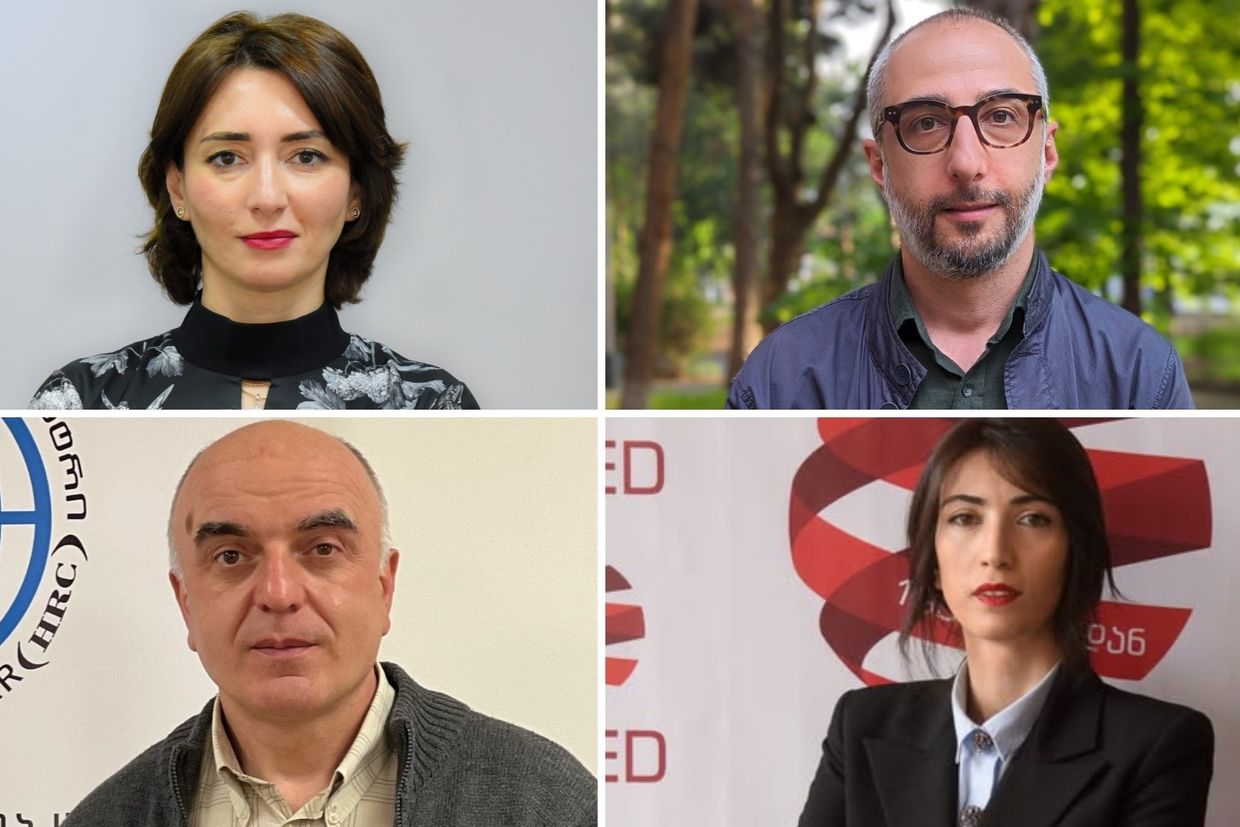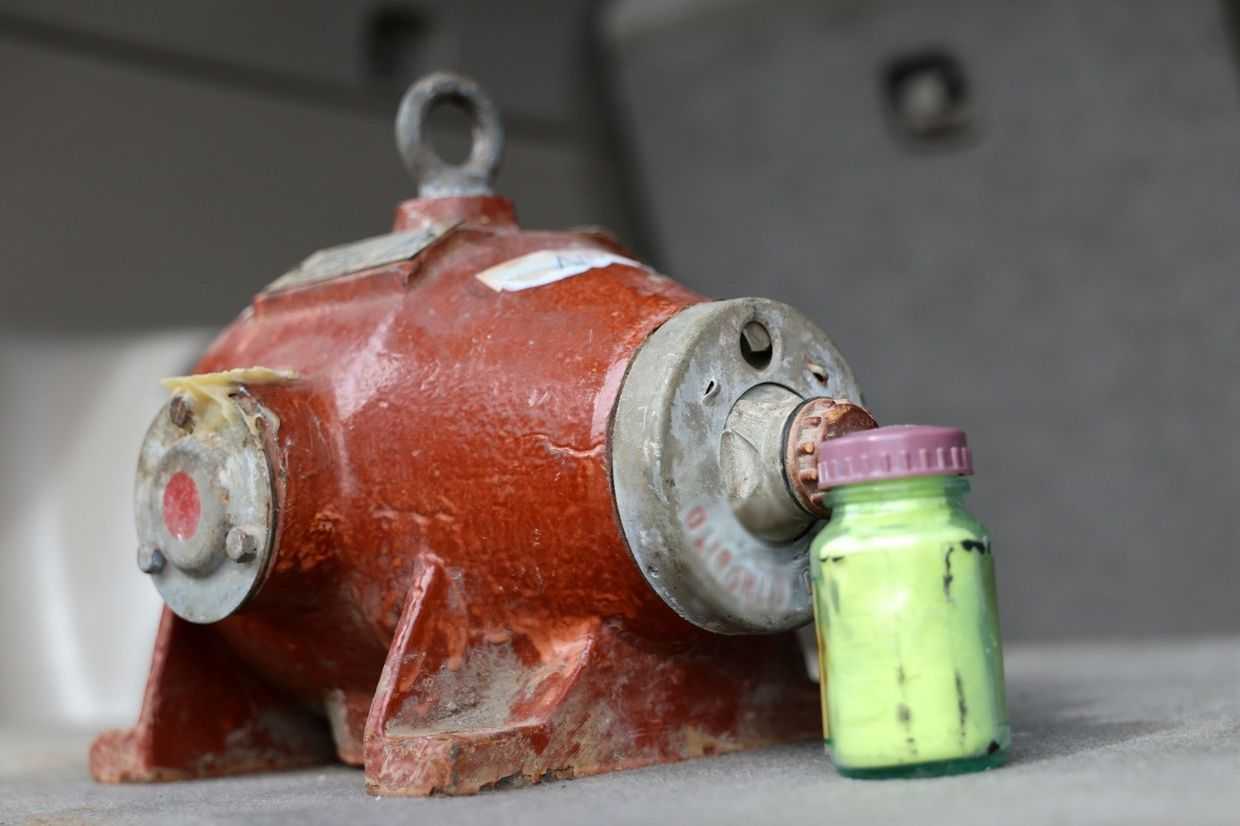
After targeting civil society organisations, Georgia’s Anti-Corruption Bureau has now launched inquiries of independent online media outlets. The process is based on the law on grants, which, following amendments in April, prohibits receiving foreign grants without government approval.
OC Media has learned that over the past week the bureau has requested extensive information from at least four entities carrying out media activities.
At different times, the Organised Crime Research Media Centre, the Governance Monitoring Center (GMC) and Project 64, as well as the organisation responsible for the Mtis Ambebi (Mountain Stories) project all received letters from the bureau.
In letters that are likely identical, the bureau, headed by Razhden Kuprashvili, informed the organisations that proceedings are underway to determine whether their activities comply with the law on grants.
All of them have been asked to provide extensive data on every grant agreement signed or in force since 16 April 2025 — when parliament adopted restrictive amendments — till the present day.
The bureau demanded information about every grant contract and agreement with international charitable, humanitarian, or other public organisations, as well as financial institutions and foreign governments or ‘their representatives’, among others. The demanded data included work plans, disbursement schedules, budget drafts, and substantive reports on contract implementation, along with other information.
The letters did not specify at the outset which articles of the law formed the basis of the bureau’s probes. Nevertheless, one section asked whether any changes have been made to active grant contracts since 16 April that are regulated under the government order reflecting recent amendments, and if so, whether those changes were approved by the government.
The bureau set a three-business-day deadline for providing the requested information. For their part, the organisations noted that due to restrictive laws, they have not received any new international grants in recent months.
‘The regime is following its plan’
One of the first media organisations to receive a letter from the bureau was Project 64 — an organisation running a Tbilisi-based outlet with the same name that is focused on explanatory journalism.
According to its co-founder and editor-in-chief Giorgi Gogua, the outlet responded to the bureau that it would provide the information only after receiving a court order.
Gogua stressed that since 16 April, Project 64 has neither received any new grants nor made amendments to existing ones.
‘I think they’ll apply these laws against us to the fullest extent, and I really expect everything — from fines to whatever else’, he told OC Media.
‘The process that Georgian Dream started against the media and [NGOs], they will carry it out, just as promised’, he added.
During the same period, a letter was also sent to the organisation that manages Mtis Ambebi — a project that has produced numerous investigative pieces on the state’s inefficiency and corruption in Georgia’s regions.
‘From 16 April 2025 to the present, [they demanded] every document […] everything that could possibly exist in the organisation, not just grant-related’, Gela Mtivlishvili, the founder of Mtis Ambebi, told OC Media.
‘First of all, even if we wanted to provide it, it’s impossible to compile and prepare so many documents in three business days […] [also], we have nothing to provide’, he added.
Mtivlishvili said that in their response to the bureau, Mtis Ambebi noted that the agency’s request was arbitrary, the volume of requested information was disproportionate, and it violated the law, including confidentiality provisions.
‘Such information could only be obtained on the basis of a court decision, yet they demanded it directly. This includes information that contains not only personal data but also commercial and professional secrets’, he said.
Shortly afterward, on Monday, a similar letter was received by the Organised Crime Research Media Centre, which runs the investigative journalism platform iFact.
Nino Bakradze, co-founder of iFact, noted that ‘the regime is logically following its plan to pressure the media as much as possible’.
‘This is an attempt to disorganise us — to confuse us, scare us, stop our work, and make us focus entirely on the bureaucratic burden imposed by these laws’, she told OC Media.
Bakradze said that during the period specified by the bureau, the organisation did not receive any foreign grants, due to the restrictive laws passed by Georgian Dream, including amendments to the grants law.
‘We are simply responding to this letter […] to say that we cannot provide what they are asking for, because we don’t have anything [to present]’, she said.
On the same day, the bureau also requested information from GMC, which manages two media projects: Plangvis Detektori (Squander Detector), focusing on corruption and public governance issues, and Realpolitika, an online media outlet covering international politics.
Gogi Zoidze, GMC’s project manager, echoed the same point as the others.
‘We have halted all financial operations, including accepting grants, so as not to jeopardise the physical or financial safety of our staff, as well as the organisation’s long-term activities’, he told OC Media.
‘Accordingly, to every question about whether we have anything, our answer is simply: no’, he added.
OC Media asked the bureau’s press office on what grounds the probe into media outlets was launched, and under which specific article. At the time of publication, no response had been received.
‘We’re in survival mode’
The adopted changes in the law on grants were a major blow to civil society and media organisations — many of which rely heavily on grants from international donors. In particular, the new legislation has sharply worsened the already precarious financial situation of independent online media.
According to GMC’s Zoidze, the organisation — whose finances were once ‘99%, maybe even 100%’ reliant on international grants — is now in ‘survival mode’.
‘Our grants are on pause. First, there’s the grants law; also, if we accept [grants], we’d have to register as agents under FARA’, he said, reiterating the stance shared by many media and NGOs that they refuse to carry the ‘agent’ label.
‘We’re looking for a new kind of business model — whether donations, service contracts, or something else’, Zoidze added, noting that for now the GMC has no long-term plan for how to continue its work.
iFact faces similar challenges.
‘We are working mostly on a volunteer basis. The team agreed that, […] despite this financial crisis, we would continue working voluntarily and not halt our activities during such a critical period’, Bakradze noted.
Gogua said that Project 64’s staff have gone without full salaries for the past three months.
The founders already had plans to gradually transition their project to a commercial model even before the recent laws, in order to reduce its reliance on grants, and it had seen some success in that direction. However, the unforeseen circumstances have complicated the process.
‘We have never faced a crisis of this scale and it’s not only financial’, Gogua noted, adding that ‘it places immense psychological pressure on everyone working here: first, the state is attacking you and exposing you to entirely unjust legal risks, and at the same time, you are constantly worrying about how to make ends meet week after week while still keeping up with your financial obligations’.
Despite the difficulties, media outlets are striving to continue their work.
‘We continue our work, and as long as we are physically able to, we will keep going’, Mtivlishvili said.
In mid-August, 21 Georgian online media outlets temporarily went offline as part of a campaign to raise awareness over the state of press freedom in the country.
When the sites returned, visitors were greeted with announcements about a campaign titled ‘The Lights Must Stay On’, which included calls to donate to a shared fund to support Georgian media.
https://oc-media.org/georgian-media-launch-1-hour-blackout-over-declining-press-freedom/
Civil society also targeted
Before targeting the media, the Anti-Corruption Bureau turned its attention to civil society organisations with several inquiries.
In the second half of September, members of civil society reported that the bureau had requested extensive information from over 30 NGOs under the law on grants, covering the period from 16 April to the present, as it did with media outlets.
The number continues to grow, with new organisations reporting investigations, affecting a wide range of NGOs, including those working on legal services, advocacy, queer and women’s rights, and rehabilitation for torture survivors.
After the organisations told the bureau that its inquiry was not legally justified and requested the case materials, the bureau turned to the court to enforce its requests — a step that has already been granted for several NGOs.
Earlier, in June, the bureau targeted civil society under laws related to political associations and corruption. At the time, Kuprashvili said the bureau’s work would focus on identifying organisations whose activities do not align with their declared objectives and are ‘covertly engaged in political activity’.
Later, in August, an inquiry launched under FARA.
The adoption of these laws has accelerated against the backdrop of daily anti-government protests triggered by the ruling party’s decision to halt Georgia’s EU membership bid in November 2024.
Georgian Dream has repeatedly claimed that these measures were necessary to fight the ‘influence of external powers’. Nonetheless, critics of the ruling party have insisted that the state actions aim to undermine the media and civil society in an already fragile democracy.











